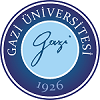LANGUAGE DISORDERS
Developmental Language Delay/ Disorders (DLD)
Developmental language disorder, or DLD for short, is a hidden but very common condition that means a child has difficulty using and/or understanding language. Children with DLD have language abilities that fall behind those of other children their age, even though they are often just as smart.
If a child;
- Does not show interest to people around him/her or to the toys when he/she is 3-4 months old
- Does not babble at the ages between 6 months and 9 months
- Does not understand his/her name when he/she is 1 year old or doesn't understand some instructions
- Does not use gestures at the age of 1 year old (goodbye etc.)
- Does not produce at least 1 to 3 words at the age of 15 months old
- Does not produce at least 6 to 10 words at the age of 18 months old (we expect at least 20 words)
- Can not follow one-step instructions at the age of 1 year old
- Can not follow two-step instructions at the age of 2 years old
- Does not have at least 100 words including verbs
- Can not combine two words together at the age of 2 years old
- Can not produce two-word sentences at the age of 27 months old (we expect the production at around 18-22 months)
- Does not pretend play at the age of 2 years old (feeding her baby etc.)
- Can not produce four-word sentences at the age of 3 years old
- Does not ask "What?", "Where?", "Who?" questions or doesn't understand "Why?"
- Can not ask any questions
- Can not follow four-step instructions at the age of 3 years old
- Can not produce four/five-word sentences at the age of 4 years old
- Does have repetitions in his/her speech or hesitate when he/she speaks
- Does have an intelligible speech to others
- Can not tell a story at the age of 5 years old
- Has problems developing an efficient vocabulary
- Can not tell a complex story at the age of 7 years old
- Has academic struggles at school
- Has significant differences between his/her receptive language and expressive language
- Has any kind of regression in speech/language development skills or social skills at any age
Shows any of the symptoms mentioned above, he/she may need a comprehensive multidisciplinary evaluation for his/her speech and language development. It's advised that you should be aware of possible delays or disorders and consult an available SLP as soon as you can.
Specific Language Impairment (SLI)
Specific language impairment (SLI) is diagnosed when a child's language does not develop normally and the difficulties cannot be accounted for by generally slow development, physical abnormality of the speech apparatus, autism spectrum disorder, apraxia, acquired brain damage, or hearing loss. Twin studies have shown that it is under genetic influence. Although language impairment can result from a single-gene mutation, this is unusual. More commonly SLI results from the combined influence of multiple genetic variants, each of which is found in the general population, as well as environmental influences.
For clinical evaluation, intervention sessions or more information, please apply to our Secretariat of the Department of Speech and Language Therapy.
Department Secretary: Ceren Ay
Contact Number: 0312 216 26 24
https://sbf-dkt.gazi.edu.tr/view/page/278972

